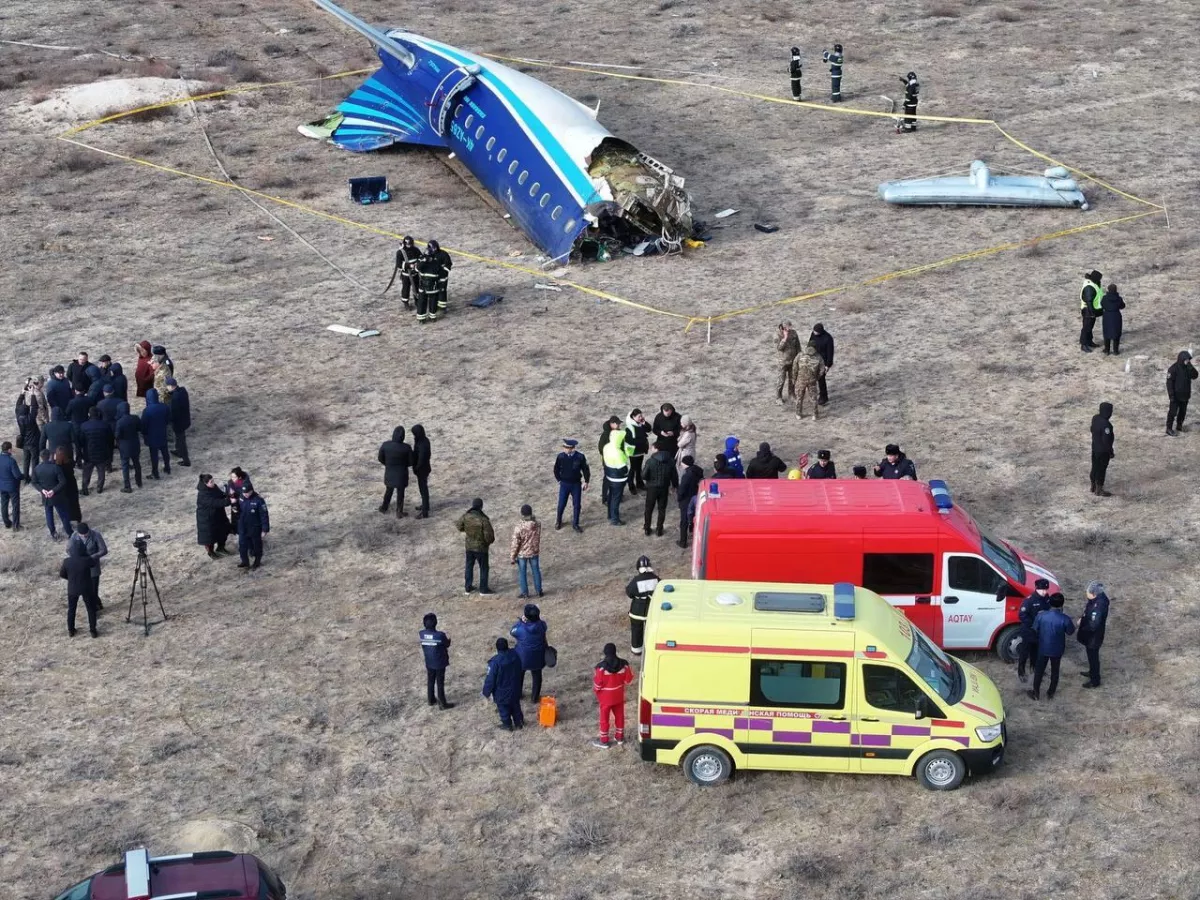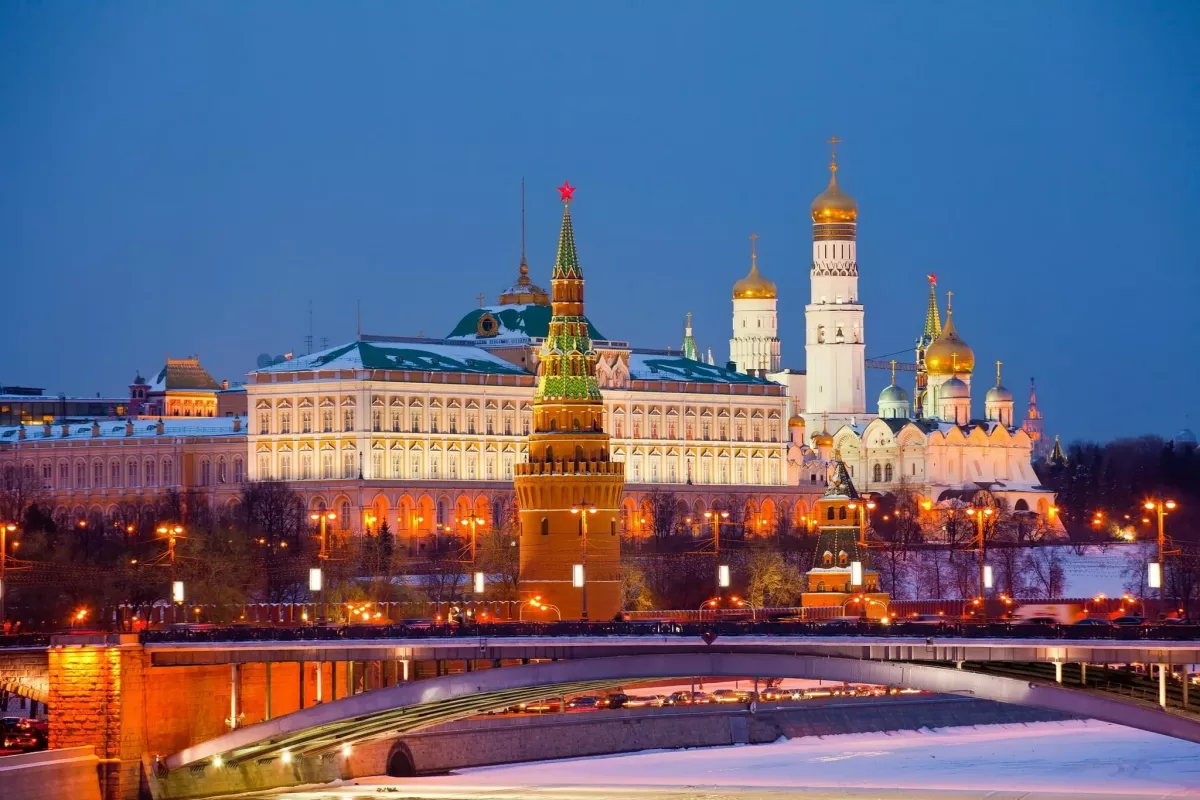Traditional aggression of Russian propaganda Blackmail in response to Azerbaijan’s just demands
The Report Agency has published an article analyzing the motivations behind the actions of certain circles in Russia and their broader implications for the country's relationship with Azerbaijan. Caliber.Az presents the translation of the analysis.
The Russian side reacted in a peculiar way to the strong arguments presented by official Baku regarding the downed Azerbaijan Airlines (AZAL) plane and the subsequent steps taken to curb the illegal activities of the "Russian House."
In its policy towards any former Soviet republic, Russia traditionally resorts to threats, exerting pressure on the diaspora. This time, the situation was no different. Our northern neighbour decided to deploy its "heavy artillery." The ruling party, United Russia, was involved in the matter. Representatives of this party in the State Duma proposed measures that have been proven over the years.

For example, MP Nikolai Valuev made threats about closing Azerbaijani diaspora organizations in Russia, restricting businesses, deporting Azerbaijanis who are illegally residing in the country, as well as placing those legally residing on military duty and sending them to the front.
Not content with this, a prominent representative of "Great Russian chauvinism," using his disturbed imagination and street slang, referred to migrants from Central Asia and the Caucasus, including Azerbaijanis, as "shobla-vobla." If in the Russian Federation, which presents itself as a state of about 100 nationalities, an MP allows himself to sprinkle slang and insults towards other nationalities, this is a serious signal to others living in or planning to visit the country. It is clear that a package of proposals for anti-Azerbaijani measures cannot be the product of the mind of someone who devoted his life to boxing and took blows to the head throughout his career. The root of this can be found in instructions from the Kremlin.
Evidence of this is provided by the proposals of another representative of the party in the Duma, Yevgeny Popov. According to him, if the activities of "Rossotrudnichestvo" in Azerbaijan are discontinued, the work of two Azerbaijani companies in Russia should be reconsidered.
Andrei Pinchuk, who was granted a mandate as a member of the State Duma of Russia as a reward for his success in separatist activities in Donetsk, fully displayed his terrorist nature by proposing the near-confiscation of the "Crocus" company and the "Sadovod" shopping complex. Pinchuk, who may one day share the fate of the Armenian separatist Araik Arutyunyan, overlooked the fact that "Sadovod" belongs to Ilham Ragimov, a friend and classmate of President Vladimir Putin.
This proposal can be explained by two factors. Perhaps Pinchuk's mind is so consumed by separatism in Donetsk that he is unaware of important matters. Or, centrifugal tendencies in Russia have intensified to such an extent that even pro-government propagandists dare to challenge the head of state.
Russian propagandists have gone so far beyond the bounds that they began accusing official Baku in connection with the downed Azerbaijani civilian plane. If accusations are to be made, Azerbaijan could provide a "machine-gun burst" — from unequivocal support for Russia during the occupation of Azerbaijani territories by Armenia to the delivery of one billion dollars worth of weapons to Armenia in the 1990s. This also includes the assassination of General Lev Rokhlin, who exposed this issue. The regimes of Kocharian and Sargsyan, which ruled Armenia for many years, maintained power precisely due to the direct support of the Kremlin.
During the Second Karabakh War, Russia repeated the steps of the 1990s. Armenia was supplied with "Iskander" and "Pantsir" systems, among others, for use against Azerbaijan. Throughout the 44-day war, Azerbaijani media repeatedly published information on this matter, and the issue was addressed at the level of the head of state. In addition to military assistance, Russia provided Armenia with support in the information sphere. On the main TV channels of the country, Solovyovs, Skabeyevas, and others endlessly showered Azerbaijan with insults, criticism, and threats.

In addition, Russia made every effort to prevent the full liberation of Azerbaijani lands from occupation. Moscow's hopes of maintaining control over the region were placed on peacekeepers. The Kremlin believed that Karabakh could be used in the same way as the illegally created Luhansk and Donetsk People's Republics on Ukrainian territory.
Against this backdrop, it would be naive to consider the sudden appearance of Russian billionaire Ruben Vardanyan in Karabakh as an ordinary coincidence. Given that oligarchs like Vardanyan in Russia operate directly under the supervision of intelligence services, it is entirely natural to view him as part of the Kremlin's "Karabakh project." At the same time, the Russian diaspora appeared in Karabakh, and it even found itself a chairman. However, after a brief investigation by Azerbaijani journalists, it was revealed that this chairman was an employee of the Federal Security Service of Russia.
As for the blackmail surrounding migrants, it is well-known how people in this category are treated in Russia. Migrants are intimidated and sent to die in the war.

It is also important to address the economic factors that propagandists seek to use against Azerbaijan. In 2024, the trade turnover between Azerbaijan and Russia amounted to $4.8 billion, which is only 10% of Azerbaijan's total trade turnover. At the same time, 75% of the trade turnover between the two countries is accounted for by Russia's exports to Azerbaijan. These figures clearly demonstrate who will bear the greater damage.
Azerbaijan, independent and open to cooperation with all, does not accept such behaviour.
There have never been insulting attacks against the Russian leadership or people in Azerbaijan. However, the current rhetoric of Kremlin-friendly propagandists gives serious cause to reconsider what is happening within the Russian ruling circles.








